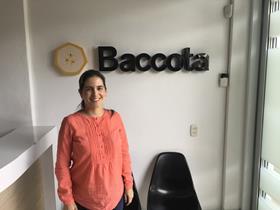
There’s a real sense of change coursing through Colombia’s veins at the moment, with industry and government taking significant steps to show the world that this is a bountiful country that makes a strong and reliable trading partner. The banana sector is just one that could be set to benefit from this new era of openness.
Bananas make up over three per cent of all Colombia’s exports, representing over a billion US dollars of export value. Among food, drink and plants, only coffee (7.8 per cent) and cut flowers (four per cent) have a higher share, making bananas the country’s most important fresh produce line. Globally, only Ecuador, the Philippines, Costa Rica and Guatemala export more bananas than Colombia [OEC].
Typically, producers have grown for the major multinationals such as Chiquita, Fyffes or Banacol, but increasingly they are opening up to the possibilities of direct supply as logistics improve and customers seek to take more product straight from the farm.
One company looking to expand its business on the global stage is Baccota, which produces 500ha of bananas and already has customers principally in the Netherlands, as well as Denmark, Belgium and Poland. Two growers supply the firm, operating from six packhouses, and manager Isabel Cristina Giraldo Restrepo points out that the firm pays double the minimum wage and has key assurance marques such as Globalgap and Rainforest Alliance.
Those assurances are vital in what is a competitive market, with established suppliers like Ecuador, Costa Rica and the Dominican Republic alongside upstarts including Mexico and Honduras.
Margarita Hoyos, chief executive of supplier Coindex, which produces 12,000 boxes a week, explains that Colombian companies work more on contract than their Ecuadorean counterparts, who do more deals on the spot market, and that rivalry with their neighbours makes an interesting backdrop to Colombia’s rise today. In the past, Hoyos explains, Ecuador had the edge in transit times, but Colombia has caught up, making it a competitive and viable option for purchasers in Europe and beyond.
As companies go direct it means that Colombia is having to develop a national identity for its banana industry, in a similar way as Costa Rica has, to reinforce in buyers’ minds what to expect of its fruit. “Our brand has not traditionally been ‘our’ brand – it has been that of Fyffes, Chiquita etc for a long time,” says Hoyos, “so we didn’t need to do marketing. We have not been aggressive enough in thinking about that.”
Promotional body ProColombia is now working on building this reputation, tied into national campaigns for food and tourism. The hope is that buyers come to associate Colombian fruit with quality, freshness and taste.
If that link can be established, there is no doubt the appetite is there among producers for a new way of doing things. “Right now Colombia is in a boom as growers see they have an opportunity to go directly to market,” Hoyos confirms. It’s an exciting time for all concerned.






No comments yet